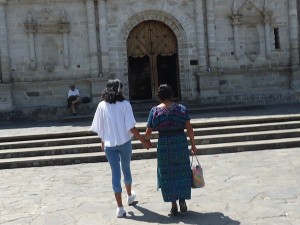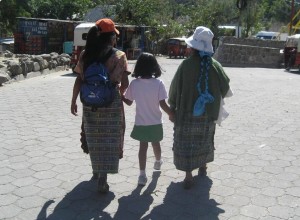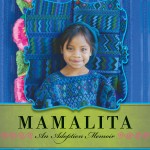As the daughter of a former Rockette who owned a dance studio—my mother—I must post a link to this Associated Press article about an amazing 17-year-old ballerina, Michaela DePrince, who was adopted as a child to a family in the U.S. from an orphanage in Sierra Leone, and is set to debut in her first full-length professional ballet. The primary focus of the article is compelling enough, but if you read through to the last paragraphs, you’ll discover another reason why I’m posting about it now.
Michaela DePrince was little more than a toddler when she saw her first ballerina — an image in a magazine page blown against the gate of the orphanage where she ended up during Sierra Leone’s civil war. It showed an American ballet dancer posed on tip toe.
“All I remember is she looked really, really happy,” Michaela told The Associated Press this week. She wished “to become this exact person.”
From the misery of the orphanage “I saw hope in it. And I ripped the page out and I stuck it in my underwear because I didn’t have any place to put it.”
Now Michaela’s the one inspiring young Africans: She escaped war and suffers a skin pigmentation disorder that had her labeled “the devil’s child” at the orphanage. She’s an African dancer in the world of ballet that sees few leading black females. She was adopted and raised to become a ballerina in the U.S. — a country where she believed everyone walked around on tippy toes.
***
“I lost both my parents, so I was there (the orphanage) for about a year and I wasn’t treated very well because I had vitiligo,” [Michaela] said Monday. “We were ranked as numbers and number 27 was the least favorite and that was my number, so I got the least amount of food, the least amount of clothes and what not.”
***
Michaela said the war and her time in the orphanage affected her for years.
“It took a long time to get it out of my memory. But my mom helped me a lot and I wrote a lot of stuff down so I could recover from it,” she said. “Dance helped me a lot. I had a lot of nightmares.”
[Adoptive mom Elaine] DePrince and her husband Charles have adopted nine children, and had two biological sons. Two of Michaela’s brothers died before she was born, and a third died when she was young. Their deaths were a result of HIV contracted from a manufactured plasma product that was used to treat the hemorrhages associated with hemophilia.
[Elaine] DePrince said the family has worked hard to develop all their children’s dreams.
Now for the part I mentioned in the first paragraph:
“She says she would have not had this dream come true if she had not become Michaela DePrince” by adoption, [Elaine] DePrince said, adding that none of the three girls adopted from Sierra Leone have expressed interest in finding their biological family.
The last half of the last sentence–“none of the three girls adopted from Sierra Leone have expressed interest in finding their biological family”–speaks to recent discussions that have ensued at the other blog where I write, Adoption Under One Roof, about connecting with birth family. Micheala DePrince is an example of a person adopted from an orphanage who currently expresses no interest in reconnecting with her biological family. Is she truly not interested? Or is she afraid to express her interest, fearful she may hurt her adoptive mother?
I don’t know the answer to that question.
But once again, I’m reminded how important it is to avoid generalizing about the subject of reunion, to treat each situation as unique, and to consider all points of view.
You can read the entire article here.
(I cross-posted this blog at Adoption Under One Roof.)


 ShareThis
ShareThis





 ShareThis
ShareThis

